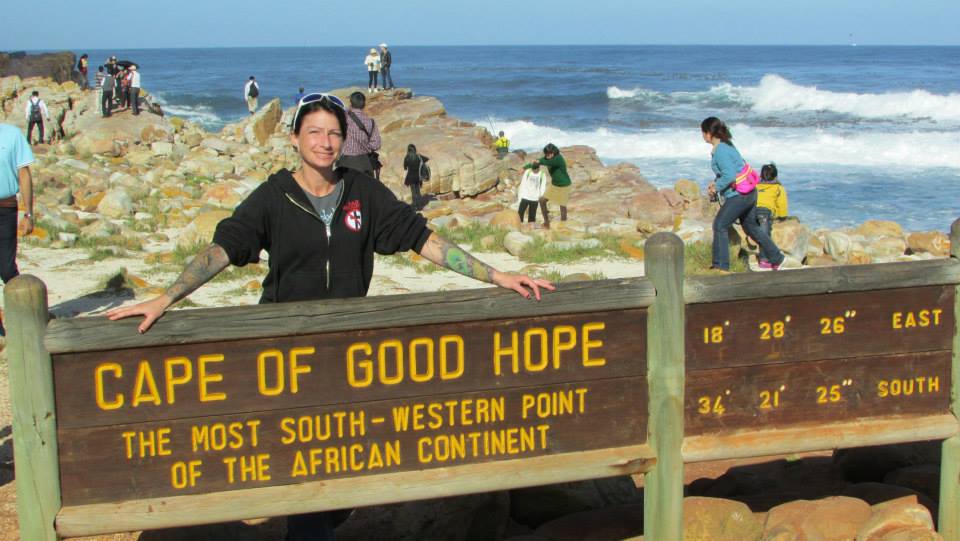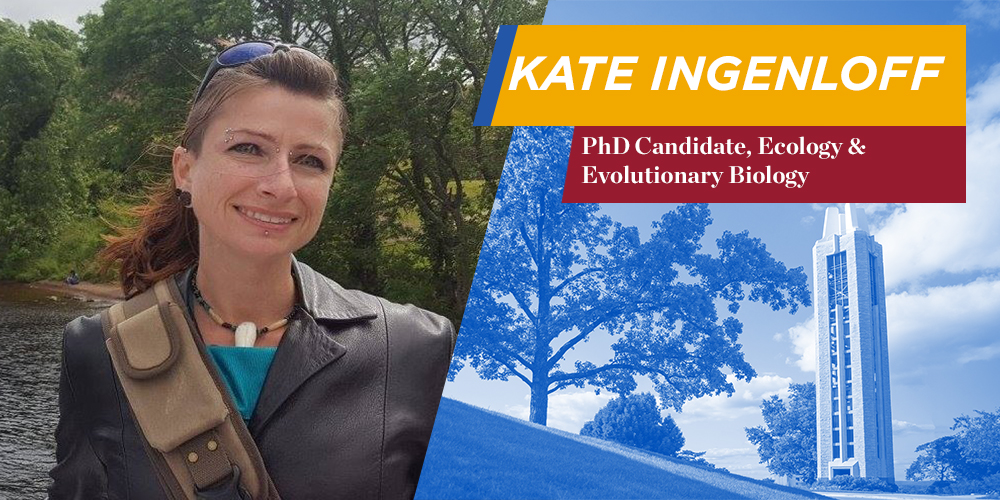What are your research interests and why did you choose them?
I have two overlapping sets of interests. As a researcher, I’m interested in distributional ecology; essentially, I study where and why we find species, and how human activities and anthropogenic climate change impact those distributions, in the broader context of conservation. As a humanist, I have a passion for ensuring that access to biodiversity information (and relevant training, tools, and opportunities) is equitable globally.
I never had that lightbulb moment of “this is what I’m going to study;” rather, it was the collective suite of experiences I cultivated after undergrad that led me to my current path. Instead of enrolling in a graduate program directly after graduation, I chose instead to gain some life experience—first as a zoo keeper in Florida, then as a Peace Corps Volunteer in West Africa, and finally as a field biologist in India. Even as I progress through my graduate studies, my research continues to evolve based on where the data (and my life experiences) take me.
Tell us what your PhD topic is about:
I’m exploring novel methods of improving predictive capacity of correlational niche models for migratory species (specifically birds) with a focus on application of open-access data and programs.
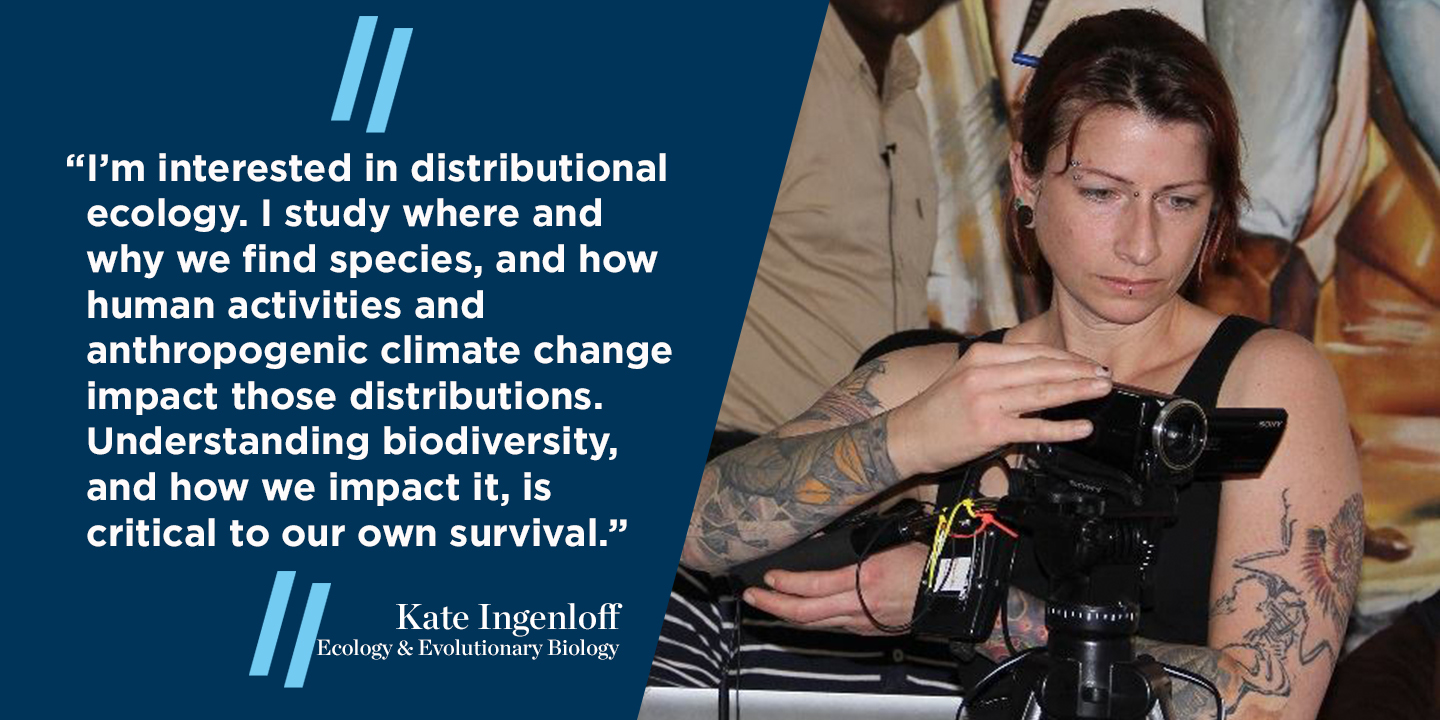
What is one thing you think everyone should know about starting a graduate program?
If you want to go into a research-based graduate program, spare yourself the angst later and take the opportunity as an undergraduate to learn computer programming.
Why is your subject important?
Biodiversity is essentially the ecological infrastructure which we as a species rely on for survival. Thus, understanding biodiversity, and how we impact it, is critical to our own survival.
Give a shout-out to a professor, mentor, advisor, or someone at KU who has helped you?
Shout out to my graduate advisor, Town Peterson, who’s been a phenomenal mentor and amazingly tolerant of my need to learn all the things, my tendency take on too many projects at once, and my weirdness in general!
What KU class would you recommend to other students, and why?
My two favorite courses at KU have been Hindi and glaciology; but as a general recommendation I would tell anyone to take Hindi. Why? Well, first, the class is amazing! You’ll work hard, but the professor –Patrica Sabarwal—and the Fulbright Language TAs are always supportive and do a wonderful job of making the learning process fun and engaging; they strive to provide opportunities for students to immerse in the culture outside the class. Passport-To-India festival at the Nelson Atkins. The latest Bollywood release in theatre. Cooking lessons and potlucks at Patrica Sabarwal’s. Skype calls with friends in India… And, second, you can never speak too many languages. Seriously, no one was ever denied a job because they were a polyglot!
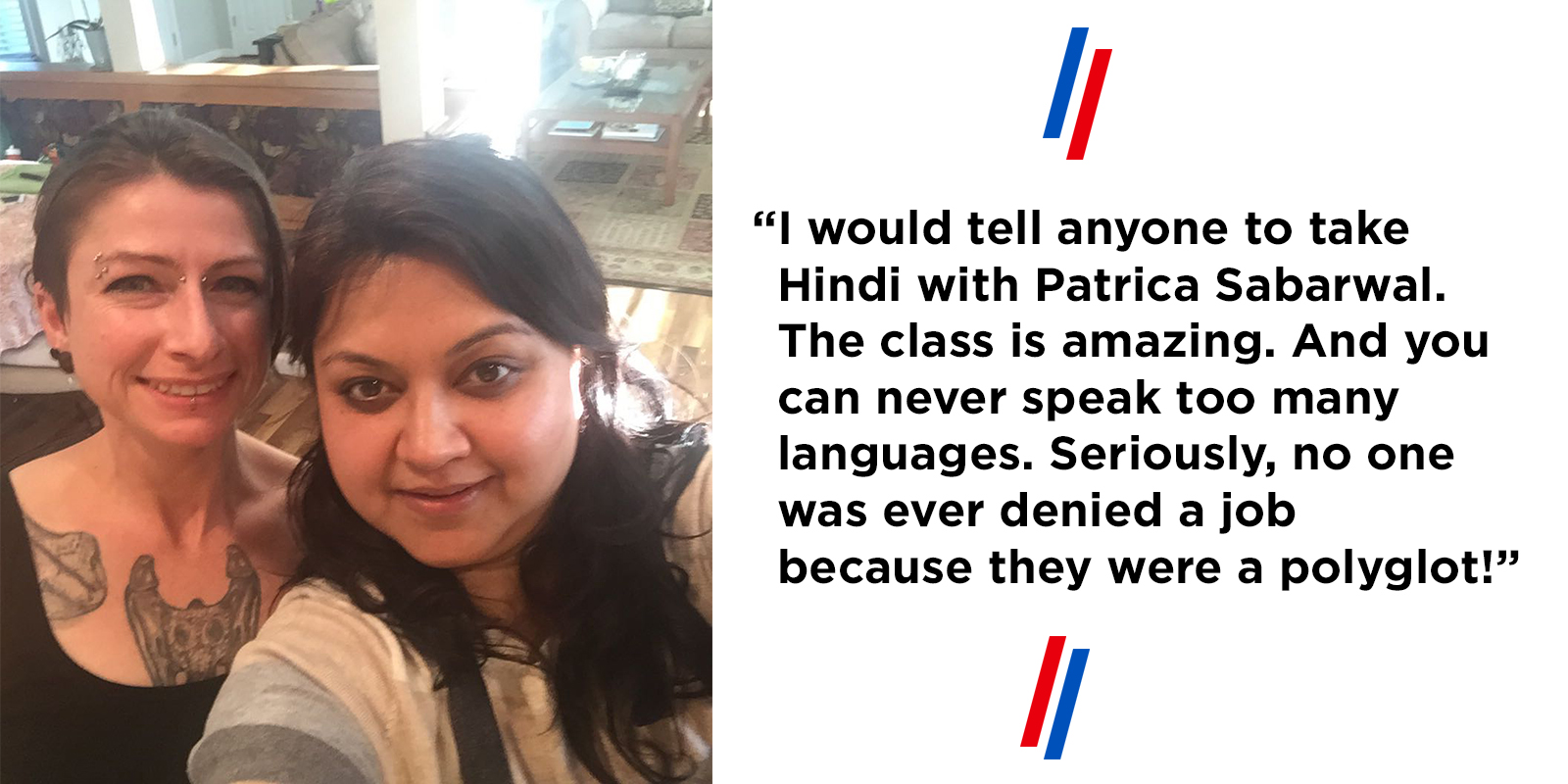
Why did you choose to take Hindi classes at KU?
I worked in Bihar, India for just under a year prior to beginning graduate school. During that time I tried to learn Hindi but work somehow always got in the way. Flash forward five years… I had just finished my comprehensive exam and decided I needed a hobby that was stimulating yet unrelated to my doctoral research. I contacted Patrica Sabarwal about auditing Hindi 110, and here I am two years later still loving her Hindi languages classes and my classmates!
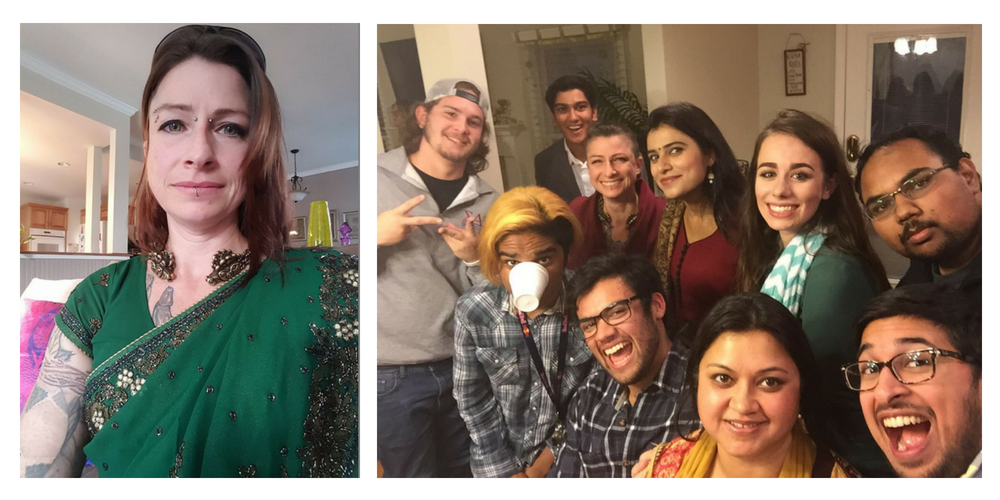
What has been most valuable about taking Hindi classes at KU?
Beyond the obvious value of increasing the breadth in which I’m able to communicate with my fellow humans, Patrica Sabarwal’s classes provide much needed breaks from the day-to-day intensity of doctoral research/obligations. And, let’s be honest, if she can get a non-traditional student such as myself to hear (and pronounce!) some of those syllables, she can teach anyone. Although Hindi isn’t directly related to my research, it’s rare that I travel somewhere and don’t hear people speaking the language, so familiarity with the language will definitely be useful. And, of course, it will continue to make watching Bollywood movies that much more enjoyable.
What is the most valuable experience you have had while studying at KU?
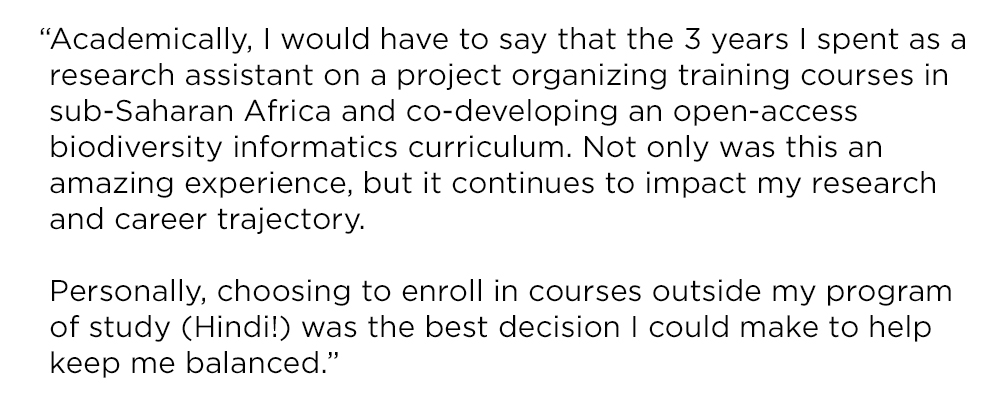
What do you plan to do after you graduate from KU?
Get a job. In all seriousness, I hope to find employment with an international conservation NGO or similar which will allow me to continue as a researcher and positively impact conservation policy.
What motivates you?
Travel and learning: the banes of prejudice and stagnation.
